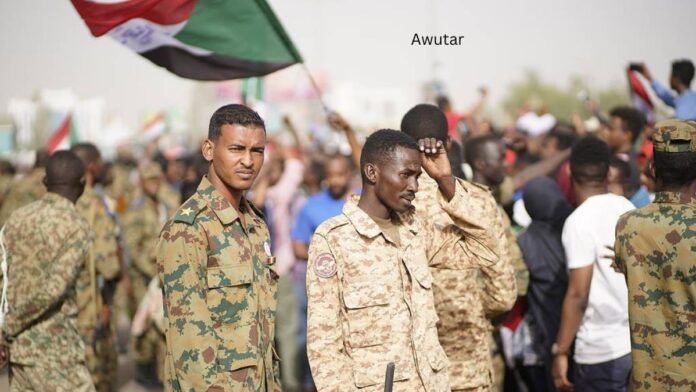The Sudanese Army confirmed this Wednesday that it accepts the restart of negotiations with the Rapid Support Forces (RSF), which are held in Saudi Arabia and are mediated by Washington and Riyadh, although it has ruled out the possibility of a ceasefire. during the talks in Jeddah.
“In response to the courteous invitation by the host country of Jeddah, Saudi Arabia and the United States, to resume the process of negotiations with the RSF rebels, and based on the Armed Forces’ belief that negotiations are an of the ways to end the conflict, we have accepted the invitation to travel to Jeddah to complete what was previously agreed,” he said.
Thus, the Sudanese Armed Forces have specified in a statement published through their account on the social network Facebook that this implies “the full application” of the Jeddah Declaration to “allow humanitarian operations and the return of the population to a normal life.” in the cities that the rebels have looted, burned, attacked indiscriminately and where they have raped civilians.
“We hope that the rebels will comply this time with what was previously agreed,” he stated, before emphasizing that “the restart of negotiations does not imply a stoppage in the national battle for dignity”, thus ruling out the possibility of a Stop the fire.
In this sense, he noted that “defeating and crushing this rebel militia is the objective of the Sudanese people and the Armed Forces are committed to this to put the country on the right path,” the Sudanese Army concluded.
The military abandoned the talks on the 27th after denouncing that the RSF were deployed in civilian homes and public spaces that they refused to evacuate, in violation of the so-called Declaration for the Protection of Civilians signed on May 11 by both sides less than a month after the explosion.
The war, which broke out on April 15 after strong disagreements between the Army and the RSF over the integration of the paramilitary group within the Armed Forces, which derailed the transition process opened after the overthrow of Omar Hassan al Bashir in 2019. after 30 years in power.
The conflict has already left thousands dead and more than 7.1 million internally displaced in Sudan, making the African country the country with the largest number of internally displaced people on the entire planet, according to data from the United Nations.


